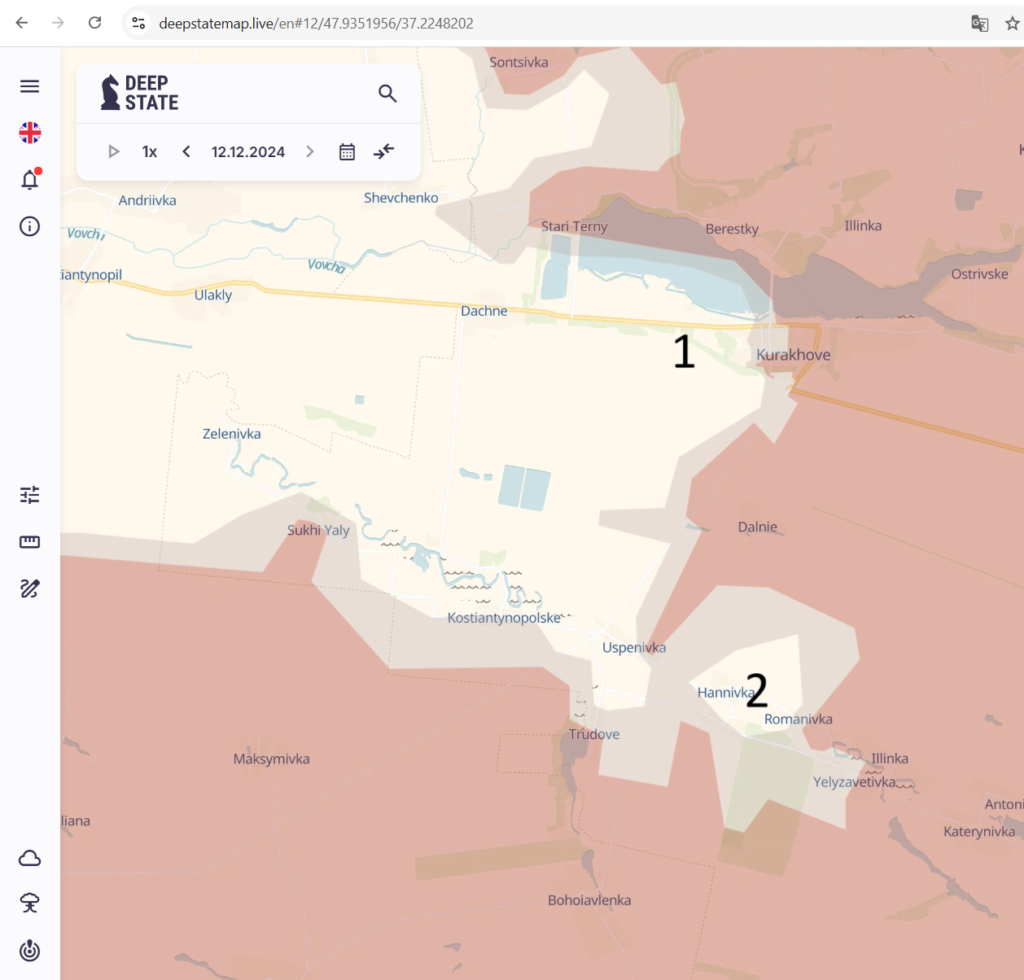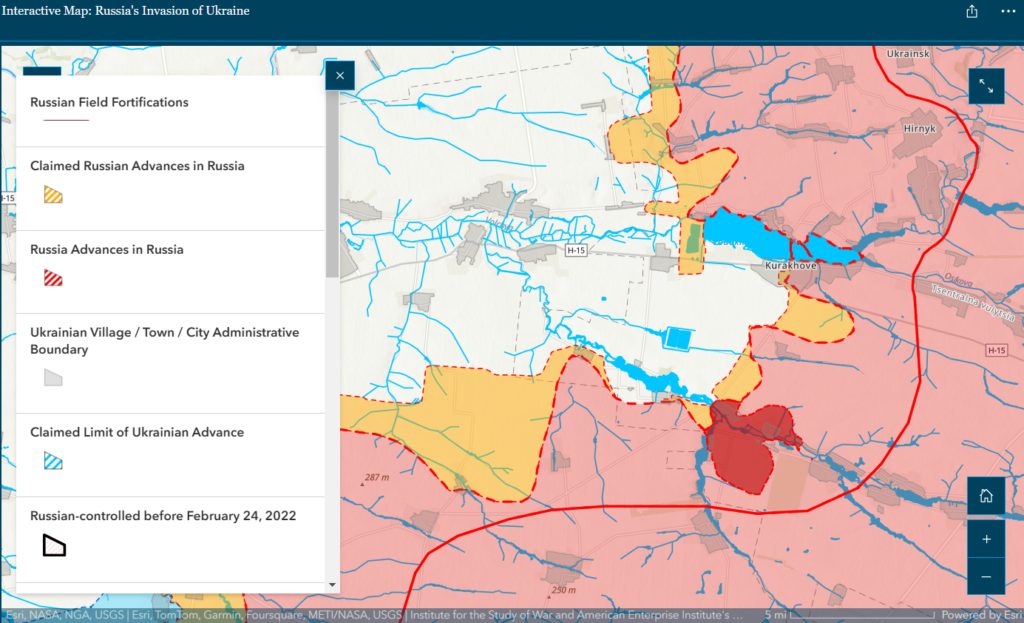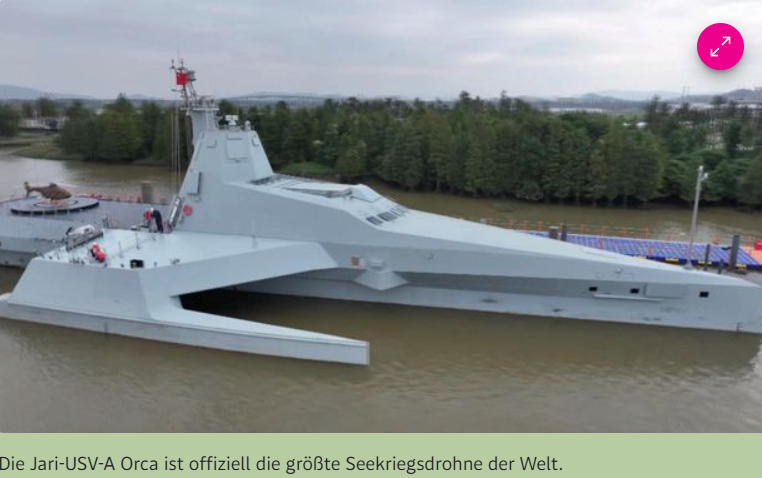It is to disappear, while you are driving the entire thing - whenever some folks would want that to happen.
So
- When the podcaster with the largest following in the world says, that he’s afraid - when the US sends rockets into russia, that prompts the ukrainian PR to make Wladimir Klitschko produce a “JOE, WHY YOU BELIEVED IN RUSSIAN PROPAGANDA!” video.
- When the designated US president does the same, four days later in his TIME - 2024 person of the year interview, its world news and the entirety of europe starts to talk about forming a european peace force for Ukraine.
https://www.youtube.com/watch?v=zGe5XazSdxU&pp=ygUNbWFuZnJlZCB3ZWJlcg%3D%3D
- but then when you go into detail - and listen to Michael Kofman in the initial video above, the story always continues on as follows:
- but then in the negotiations the US will lose all its agency, and will not get what it needed - which we never need to talk about in detail, because Russia will want more. Regardless of what it is. So then the negotiations obviously fail, and then Trump will recognize that he doesnt get what he wants so easily, and then he will react like a madman of course -- and switch his entire stance to the opposite, because he likes winning so much -
and this will still allow us to prolong the war, which gives us a chance to put Ukraine back into a more favorable position and then…
- the entire plan we followed for two years, just gets postponed by 6 months, and of course germany has to pay more - because Trump really is the type that will want to pay less.
Whats missing from the entirety of this projection?
Any US agency.
We dont know what they want. We dont know what Russia wants “more” just that it does so, and therefore negotiations will fail. We dont know why Trump will switch positions at that point, just that he does, because he’s that impulsive, but hes not impulsive to that point before, or later, or when it comes to reminding the germans, that they have to pay more.
So - now that it is entirely obvious, that Ukraine isnt driving any of this - what is the US position?
What agency does the US have?
Here is the only likely answer in my mind.
Trump wants to end this war.
What he wants doesnt matter. (See also: NZZ 22.11.2024: click)
Because as soon as he talks to Putin about half of his advisors will tell him, that he got a bad deal, and he cant possibly want that - and then, why using the rockets that Trump didnt want to use - is just the way out of this, he was looking for.
And about 100% of the US Experts that are part of the US foreign policy establishment think, that they - or the situation as they represent it, will drive the entire situation back to where it was the past two years, regardless of Trump or not.
So - when you see the events progressing in that sort of way - you can instantly think about the substory such a plot would be embedded in in some bad novel.
Now we are in the period of struggle. The german society is unsure. The media ecosystem is really worried about the future of Ukraine, but dont you worry - the bad, bad Putin will make it impossible that the negotiations will be successfull - and then the true King will see the wrongs of his ways, and understand, that he must be King, and act tough - and then he will finally beat the evil Ork-Lord, and society never has to come to terms with the fact, that the entire media narrative so far didnt represent what happened, and in large parts was driven by US generated “counter naratives”.
So thats the special power of the US. It has no agency. Everytime it does something, the entire reality just instantly changes arround the US position, so that the US just didnt have agency, in the last thing that happened. It just was the obvious thing that would happen. And therefore the US position also never has to be explained.
Wether it ist, that US rockets flying into Russia is bad, or if that is just Russian propaganda, doesnt get decided by the public argument, or the time in the conflict - it simply gets decided by “when the US picks that as a narrative” -- and then it is bad.
When the US comes up with a set of demands, its never that set of demands, that would cause negotiations to fail, or the reactions of the military advisors to subsequent counterclaims, no its always - that Putin didnt want to talk anyhow.
And when Donald Trump subsequently changes his position again, and goes full Pillsbury Doughboy on the world stage, and rachets up the escalation ladder, its not because he is unstable, no - it is because that would be whats obviously, likely to happen - and the only way the Ukraine still can get to a favourable position six months later than hoped, with germany spending more money on it. With the US doing less to support this outcome - but its the only way to freedom, really.
Its not that Ukraine is driving this - because its obviously not --
its just that when the people that drive that in the US get into storytelling mode -- the entire world changes around them, just so the US never has any agency - anything that they want. Anything that would be their red lines. It either happens like they want it to - or it was obvious, that it was never meant to be that way anyhow.
Especially when you have someone at the helm whose decision making is seen as transactional.
And its not just in this case - with a person like Trump, its the entire “this is how it will work in the future” the American Academy in Berlin promoted two days ago:
So -- if the younger people in the US (genz and millenials named) dont want the US to play World Hegemon, its of course because they never benefited from that financially, and they grew up in a different time, and we told them that bringing back industry to america was the solution, you really have to understand them, and build a whole new narrative on what US foreign relations are around them. [context: click] This is your task as a proponent of the American Academy in Berlin, as you openly tell every Berliner that is in the captive audience there.
But then -- when you get an audience question to the effect, that China really tries to drive the “europe divided” gambit right now, and that Europe isnt able to end the war on its own, but that the US is always demanding deals that are zero sum game (because you have to understand, thats Trumps transactional nature), and that the US might demand, that Europe has to decide between China and the US during a period of war the US is just detatching more from --
you of course get the answer, that IF Europe is always trying to drive the bargain that is best for it, Europa had it coming, and the Europeans really just have to suffer a bit more (so your millenials get better economic conditions, but that you dont mention of course, because you dont have any agency).
See -- is not the US agency that drives this, its the world forming around the US argument, as soon as it is fixed into position, just so the US really had no agency - this was just the normal way things would develop.
And this is what you call “us foreign policy”, or deep state, if you are a rightwing nut in the US, or Friends of Alpbach, if you are in Austria.
The only thing you really have to do is to set up the media narrative, so that anything the US does really isnt something the US does, but something that Ukraine has to decide, and then not tell the public, that the Ukraine doesnt decide shit. And then make the transitions fast enough to where the public can retain in a “I always believed we should stick with Ukraine” just long enough, for this to make sense again -- once you got rid of what your president wanted, or what the negotiations really failed on and just remain telling the world, that its all because Putin is a crazed being hellbent on reconquering the russian empire -- with entirely too few troops and tanks for that.
But you see - the only thing we can do - is stick with what we are doing, so Ukraine can get the upper hand again, and then this finally can result in a just peace -- with territorial integrity. In the future, through political means. When Ukraine is in Nato, which sadly it should be in already, but cant be until Russia is beaten.
You see - this is not US agency (oh, and fuck germany during all of this), no - it is just the logical progression of things.
And the world once more starts to revolve and evolve around the only possible framing, where the US just had no agency.
Then the US had nothing to do with the coup in Syria at all - according to US officials and its next designated president also wants to have nothing to do with it - but then the US foreign minister flys into Ankara to discuss the situation with turkey - but not into Israel, because - see, you really had no agency. It was just logical, that the world revolved around you like this, while we have to wait how things will work out for Syria - because of course - we have no agency in any of this, as Syria has a vibrant and vivid civil society.
Also - of course the cause for the Syrian revolution was Iran, as everyone knows, of course, that took a set of bad decisions in october of 2023 - as the Woodrow Wilson Center speaker featured in the thumbnail of this video [edit: they changed thumbnails, more women, more click] will tell us today:
edit: It also helps immensely if your sworn enemy of the Leo Strauss persuasion, is ALWAYS driven by personal agency only. So - hes always crazy, corupt, insane, out for revenge. Just because its such an attractive emotional contrast to you just having no agency in all of this.
Well, democracy promotion, maybe… - or you are doing it for “success” if you are really pressed for an answer. Or “there has to be an adult in the room, and thats the US” as the Woodrow Wilson Center fellow puts it in the video above. Even though Syria has to manage this on its own. Because the US has no agency. And then, when the youngest panelist asks you, but how can the US play a role in all of this, because it would just result in a better outcome, you of course answer -- its not that a question of “how can we be a part of this, it is that the circumstances will always draw us in (because - later in the argument, the russians could grab power again so easily)”. As we simply have no agency.
Slava.
Slava Ukraine.
Do I still have to say that? Well, better safe than sorry, …
Slava Ukraine, Glory to our heros.




